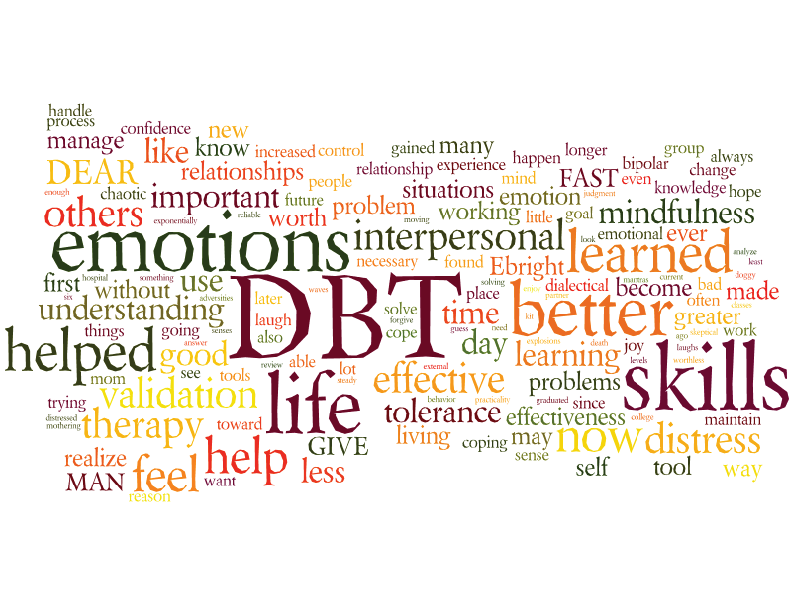
Northwest Passage engages programming specific to the needs of our clients. Although our clients are often referred to us because of behaviors that have been concerning to those who love them and problematic in their lives overall, most often it is their emotions that lie at the root of their difficulties. Often, our clients are those who have experienced extreme emotions and who often attempt to avoid distress by engaging in harmful behaviors (drug use, elopements, promiscuity, self-harm, etc.). Therefore, we have integrated Dialectical Behavioral Therapy, or DBT, into our programming.
DBT differs from other methods of therapy because it focuses on emotions rather than thoughts. DBT teaches people to look at areas of conflict in their lives and resolve them differently than they typically have in the past. Ultimately, this will help them discontinue those harmful behaviors. DBT focuses on the here and now, rather than what may have occurred in the past and includes instruction in areas such as:
- Emotional regulation – learning to change emotions and promote stable emotions
- Distress tolerance – learning how to put up with emotions that hurt but can’t be changed
- Interpersonal skills – learning how to appropriately interact with people to successfully get what you want
- Mindfulness skills – learning to be in the moment rather than always in your thoughts
- Meaning-making skills – identifying what is really important to you so that your behavior and plans are always tied to your values
DBT typically includes one individual therapy session and one group therapy session per week. Both sessions focus on instruction of the necessary skills. Clients are also asked to complete homework assignments between sessions to help them maintain focus on the skills they are learning.
DBT QUICK FACTS
- “Dialectical” means combining opposite ideas. DBT focuses on helping people accept the reality of their lives and their behaviors, as well as helping them learn to change their lives, including their unhelpful behaviors.
- A unique aspect of DBT is its focus on acceptance of a client’s experience as a way for therapists to reassure them — and balance the work needed to change negative behaviors. Clients agree to do homework to practice new skills.
- With DBT, life skills are learned and enhanced. Getting past the challenges of ineffective thinking patterns and emotional extremes requires being truly committed to changing behaviors that are clearly not working.
